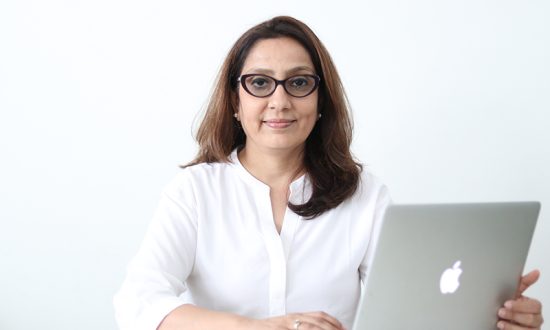Purvi Gandhi completed her BSc and further went on to specialise in Sensory Integration from the University of Southern California. With experience of over 2 decades Purvi has helped her clients overcome conditions like Trichotillomania, Consistent Bed Wetting, Stammering, Wet Palms, Anxiety to name a few. While one may experience physical or mental ailments, Occupational Therapy can also be used to achieve various goals in your life like enhanced learning, confidence, self-growth to name a few. Being a practising therapist for the last 25 years, Purvi is associated with The Aditya Birla Integrated School in dealing with cases like autism, ADHD, slow learners, dyslexia and lots more.
First day of school? Hmmmm. For some it is excitement of meeting friends, for some it is going back to studying and for some it is feeling anxious -not knowing what to expect after almost 2 years of not attending physical school. In general most children feel safe and secure with structure, play, social interaction and predictability.
A lot has changed due to the pandemic (for children) in terms of daily routines, social gatherings, physical play and stability. This has given rise to anxiety or a mental health crisis (especially with the children who have sensory processing difficulties). But on the other hand it has also taught us that life can be unpredictable.
Few tips for reducing anxiety and creating more stability would be:
1) Acknowledging and listening to your child about their fears and offering support without any judgment. This helps the child feel open to share anything with the caregiver without hesitance and also serves as an opportunity for enhancing their emotional development.
2) Talking to them about it, it is okay to not know things. Make them write about the benefits of online schooling vs physical school. I mean to say benefits. so find something good about both so that there is little flexibility in adjusting if at all they need to in the coming future. For eg when school goes online, we get to spend time at home but miss out on meeting friends. Similarly when you go to school you get the joy of meeting your friends but miss out on being at home
(make both sound equally exciting so that transitioning from one to another becomes easier).
3) Having said about developing flexibility, establishing a structure provides more stability for children who are differently abled. Knowing how their day looks makes it easy for them to transition. Occupational therapists would suggest making use of visual schedules and timers if needed as per the requirement of the child.
4) Lot of children benefited from online schooling, especially the ones who had difficulty in processing and integrating the sensory input. These children who may be sensitive to touch, sight, sound, movement may need strategies to reduce this sensory overload causing heightened states of arousal and anxiety. Creating calming corners in school, using noise canceling headphones, allowing opportunities for meaningful movement can aid in regulation.
5) As an Occupational therapist would also advise parents to pack more chewy food items for break, using a straw for drinking water, milk, milkshakes. Oral motor input is very calming and regulating.
6) As a routine, introducing deep pressure(firm tight hugs, cuddling, massage with firm strokes, squeezing) and heavy work activities like carrying the laundry basket, carrying books, arranging furniture (pull- push), swimming, vacuuming etc. This activates the proprioceptive system which may help in more organized regulated behavior.
7) Practicing mindfulness along with breath by the caregivers be it a parent or a teacher can not only help children but adults themselves to be more regulated, hence more available to their kids. Here is how it can benefit, simple but effective. Anxious states can trigger a sympathetic nervous system which activates the body to either fight, flight or a freeze response. Breath work in terms of deep breathing can stimulate a more parasympathetic response which can signal the body and mind to cool down and alleviate anxious states. For children this can be done by using different props like Hoberman sphere (gives a good visual feedback to understand expansion and letting go), simple pinwheel, blowing bubbles (take a deep breath and hold n then blow).
Occupational therapists are the professionals who are equipped with the skills and expertise to suggest modifications and strategies as well as integrate and rewire the brain that will ensure the sense of safety and dignity of young people. They can also offer support to teachers and families to consider how changes to routines and activities will affect each child individually which can help children to understand how their day will be different and why.




